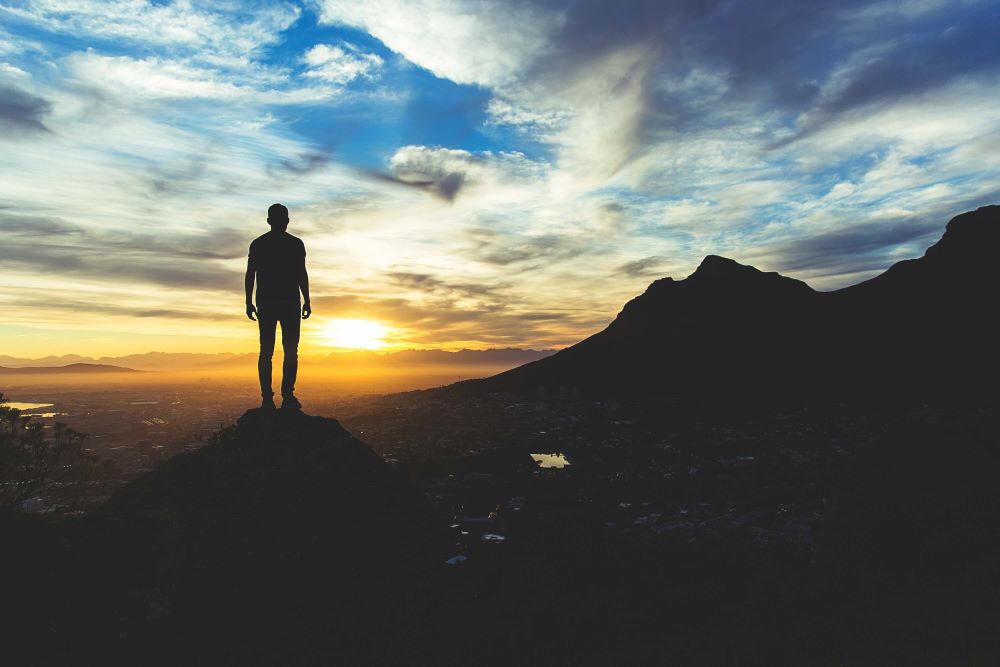Editorial: What to do?
Current and anticipatory grief
The reality of the continuing extinction of many so species is profoundly upsetting. Readers may wonder why old people should care. For example, I’ll be dead in a few years myself; it will be up to others to live their lives diminished by the loss of caribou and many other creatures, many birds and even insects, in ways we don’t even realize yet; most of the coming tragedy may not touch my life. So why do I care?
I won’t detail here the many expected effects of the climate crisis on the life-support systems in our biosphere, and on our society, our whole civilization, and our prospects for survival. Many people more eloquent than I have written about those things already, based on sound science, and anyone not aware of them now must be practicing willful blindness.
One scientist has said that the climate crisis is likely to “wipe out” six billion (or so) of the humans on earth by 2100. That’s quite a few years off, right? 80 years from now. The Second World War was about 75 years ago. We still recall and refer to the Second World War, but such a span of time into the future is apparently unthinkable to our politicians, who seem unable to think further ahead than the next election, which means that our federal politicians are now thinking in terms of less than two months.
Again, should old people dismiss from our minds all concern for humanity in the time after we’re dead and gone?
Well, no. Because we have imagination and empathy, and younger friends and relatives, and we’re aware of the plight of younger people all over the world. We care about them. We care about the sort of world they will have to survive in, and how hard they will have to fight for that survival.
Our better selves
But there’s more – much more. It hurts and shames me to see my species – humanity – being responsible for so much death and disorder around the world. Other people have been describing humanity as a scourge, a plague, a cancer – destroying so much of life on earth, including a high likelihood of destroying most of our own species along with it. Some have expressed the opinion that we deserve the fate we are bringing upon ourselves. That may be true, but I balk; I want humans to survive long after I’m dead, in hopes that humanity might achieve the much higher potential that I believe is possible.
It’s true that most of our politicians and voters are short-sighted and (in my opinion) mistaken in their political aims: growing the economy! Expanding fossil fuel production! Stirring up divisiveness as they campaign! Increasing our extraction of all resources, to get richer! Ignoring science and all limits suggested by science!
Too many politicians are too closely linked with the industries doing most of the damage, as noted in a recent analysis: “We live in two separate worlds” – yet, on the same planet.
We will be done in by the fact that we cannot prevent the laws of physics from applying to our own actions. As others have said, isn’t that fair?
It may well be fair but it is also inescapable.
We’re a varied lot
Still, I mourn the decline and fall of humanity at our own hands because so many humans are so much wiser and more caring than the ones accelerating our doom – and I wish that the full potential of humans for wisdom, compassion, co-operation, intellectual brilliance, kindness, music, science, poetry, art – could grow and rule in our culture. If – globally — we valued wisdom over superficial charm, celebrity, wealth, good looks and bellicosity (for example), we could govern ourselves so as to enjoy peaceful lives with room for creativity. We could develop ever less-intrusive and more ethical ways of co-existing with the rest of the web of life. We could peacefully draw down our human population to levels that would enable other creatures’ habitat and populations to recover and flourish.
Or at least we could avoid a forcible descent into the sort of stone-age existence humans will probably face if we pursue “business as usual” and let the climate and pollution crises rampage on unchecked.
Has sacrifice ever worked?
For millennia, humans have practiced sacrifice, or the ritual killing of human beings or some other animal, hoping it would gain them a desired result. In the present time, it appears that the practice has not been abandoned entirely, as we see business and political leaders sacrificing the future lives of the world’s children to gain some short-term benefits for themselves.
The only kind of sacrifice that’s likely to gain us a better future than the one now staring us in the face is the sacrifice of many things taken for granted, and cherished, by too many people.
Useful sacrifices
We could begin by sacrificing our mistaken values – the ones that tell us how glorious it is to be rich. The values that say we aren’t worthwhile people unless we have amassed a certain level of material and financial wealth. The values that enable us to feel that we are more deserving of a good life because we have “good” parentage, or we belong to a certain group of religious believers, or because our skins are a certain shade, or because we haven’t been felled by circumstances beyond our control, or by illness.
We could move on by sacrificing many of our expectations: the expectation that we should be able to have a gigantic pick-up truck (or whatever) even if we don’t REALLY need it, or use motorized means of recreation, or fly wherever in the world we feel that we want to see; or our assumption that never-ending economic growth is possible and desirable. We could sacrifice the expectation that every woman not only can but ought to have children.
We should sacrifice our assumption that our lives will move smoothly along the path we’d prefer to follow, even if no one does anything to address the massive problems of humanity’s effects on the biosphere – that part of the world that supports life, including our own. There are several massive problems, in addition to the climate crisis. We should sacrifice the delusion that none of this will affect our lives, so why should we do anything?
But what will we have left if we sacrifice all that?
If we jettison the values, expectations and assumptions that guarantee the continuation of “business as usual” we will have a better chance allowing more of the miraculous life on this miraculous planet to survive our excesses. We will leave the younger people a better chance of life and, perhaps, a functioning society. We must recognize that it’s only a chance, and that a chance is far, far better than no chance.
The more of the world’s species that survive the coming changes, the more chance humanity will have to develop a society that will nurture our better selves, and embrace the rest of life on earth as not only precious but also necessary for our own best life.
It may be that the great winnowing to come will leave only the most brutal and self-interested, instead of the wisest and most humane. But maybe both will survive. Maybe wisdom will grow. Perhaps the survivors will learn enough from the catastrophic failure of our systemic rapaciousness to avoid repeating it.
So yes, I’ll be marching in the streets and I urge everyone else to wake up and do that too. How else can we show politicians that we want them to act for the common good, instead of guaranteeing the worst level of disaster by carrying on business as usual?



























Comments